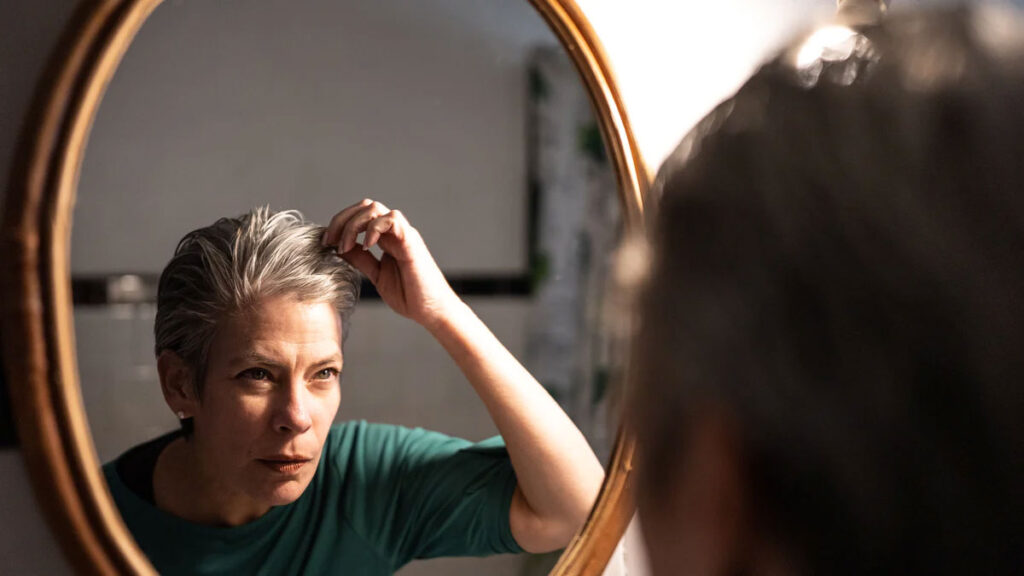
Why Does Menopause Cause Hair Loss?
No matter how we may try to soften the blow of hair loss — by, say, calling it a “widening part” or a “skimpier ponytail” — it smarts. And not just because our hair is often tied to our identity.
Experiencing menopause hair loss, at a time when we already may be suffering from hot flashes, mood swings, brain fog, and dry, itchy skin, hardly seems fair. But perimenopause and menopause can, in fact, “potentially cause hair loss in some women,” says Sanjay Batra, PhD, a regenerative medicine, hair loss, and platelet-rich plasma expert and fellow of the American College of Cardiology.
What’s Estrogen Got to Do with It?
The female sex hormone estrogen is at the root (ahem) of the hair loss issue. Estrogen is a hair-friendly hormone — as in, it plays a big role in promoting hair growth and maintaining hair thickness. Beginning in perimenopause, however, both estrogen and progesterone (another one of our primary sex hormones) start to diminish. Interestingly, it’s not just the dip in estrogen that messes with hair growth; it’s also the resulting “unfriendly” balance of hormones we’re left with, Batra says.
“Women also possess the male sex hormone testosterone, but those levels seem to stay the same before and after menopause,” he says. Suddenly, we may find our bodies responding more actively to the male sex hormones coursing through us, because there’s less of the female sex hormones to balance things out. This explains why menopausal women may start to sprout chin hairs and experience hair loss and menopause hair thinning.